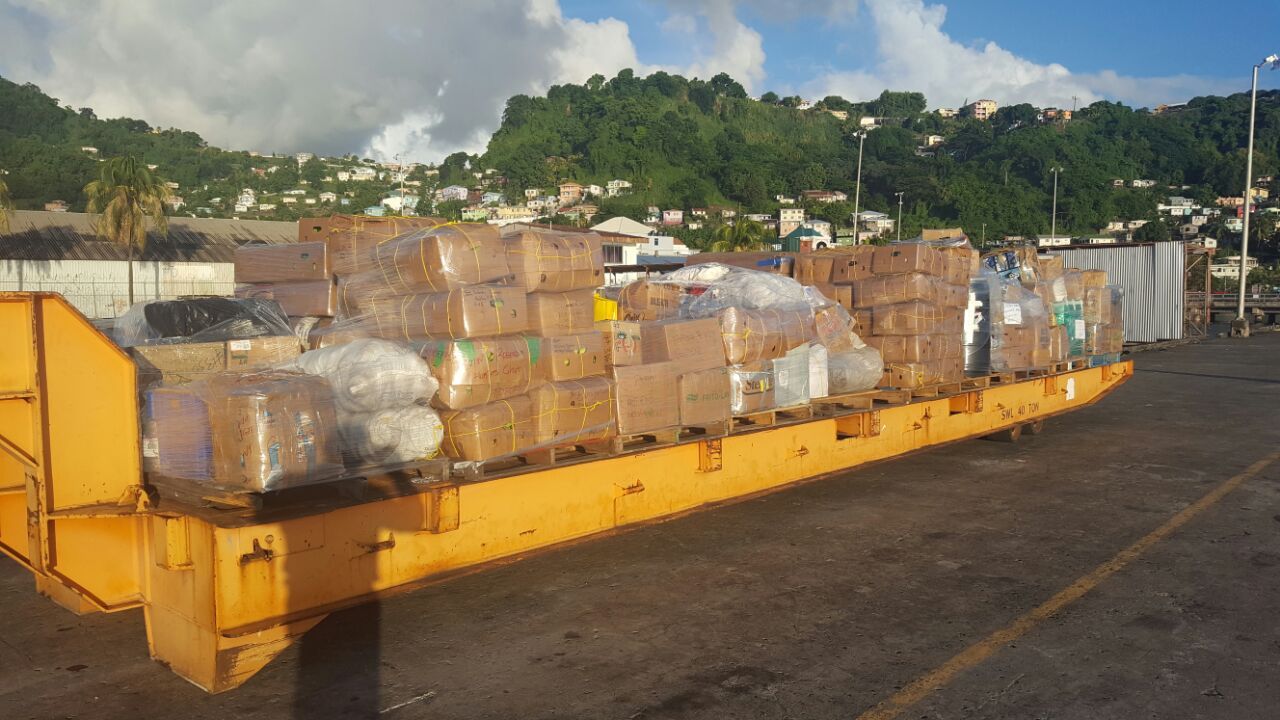Hurricane Irma: 1800 Tonne Relief Vessel from Saint Vincent and the Grenadines Arrives in the British Virgin Islands
OECS Media Release
With impending Hurricane Maria and the passing of Hurricane Irma, an 1800 tonne capacity barge carrying much needed food and emergency supplies from Saint Vincent and the Grenadines has off-loaded in Tortola, The British Virgin Islands after the rapid mobilisation by the SVG’s Government, farming community and the private sector.
The rapid emergency response was coordinated by the Hon. Minister Camillo Gonsalves and Minister Sabato Caesar acting as the SVG Government’s official delegation to ensure the smooth flow of relief efforts to the British Virgin Islands.
Speaking from Saint Vincent and Grenadines, Minister for Agriculture the Hon. Sabato Caesar said that with approximately one tenth of the British Virgin Island population having a St. Vincent and Grenadines connection, the Government opened the opportunity to send personalised packages to family members and friends free of both shipping transport costs and export duties.
“The barge has been delivering its load in Tortola and Virgin Gorda ahead of Hurricane Maria which is now bearing down upon the Leeward Islands” said Minister Caesar.
“This response on behalf of the SVG Government is one part of a coordinated regional and international effort in an ever evolving complex logistical environment.
“Despite the obvious challenges, the SVG Government and our partners will not relinquish or falter until our brothers and sisters impacted by the worst natural regional disaster in living memory experience a degree of normality and comfort as they go about rebuilding their lives and lost property.
“We applaud the SVG farming community and the private sector for their extreme generosity and to Bishop Charles of the International Worship Tabernacle as the point person for SVG relief” said Minister Sabato.
OECS Director General Dr. Didacus Jules said the community saluted this latest initiative of the SVG Government made possible in part by the OECS Agri-shipping initiative and said more emergency supplies were continually being sourced across the OECS for both sea and air drops into the worst affected areas.
“Regrettably with climate change placing an iniquitous burden on Small Island Developing States, events such as Irma are likely to become the norm and not the exception necessitating the need for enhanced inter-regional cooperation.
“Rebuilding is going to take months and with OECS Member States responding in union with our partners it is also incumbent upon all of us to do what we can and contribute where we can as part of the one Caribbean family” said Dr. Jules.





